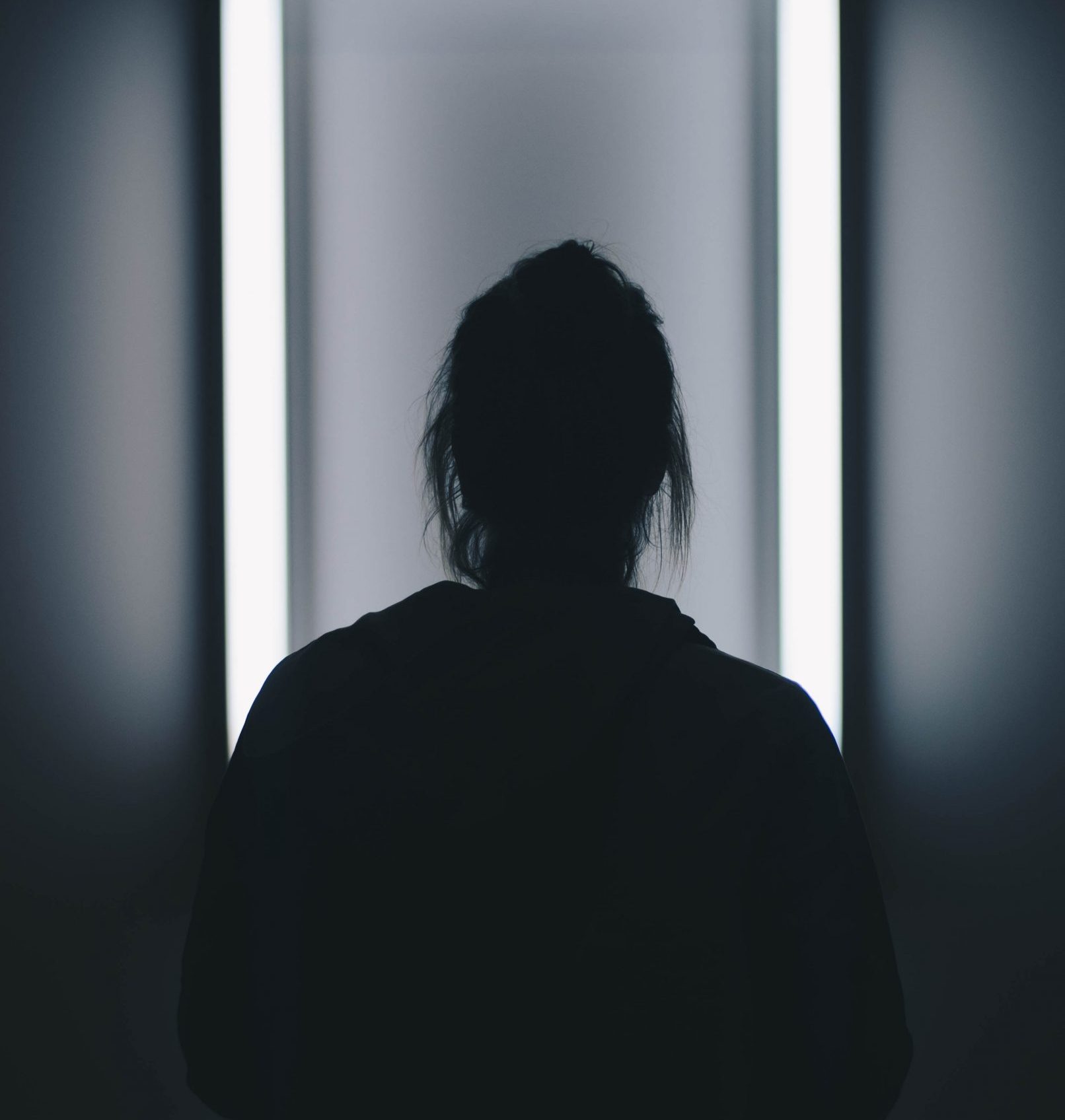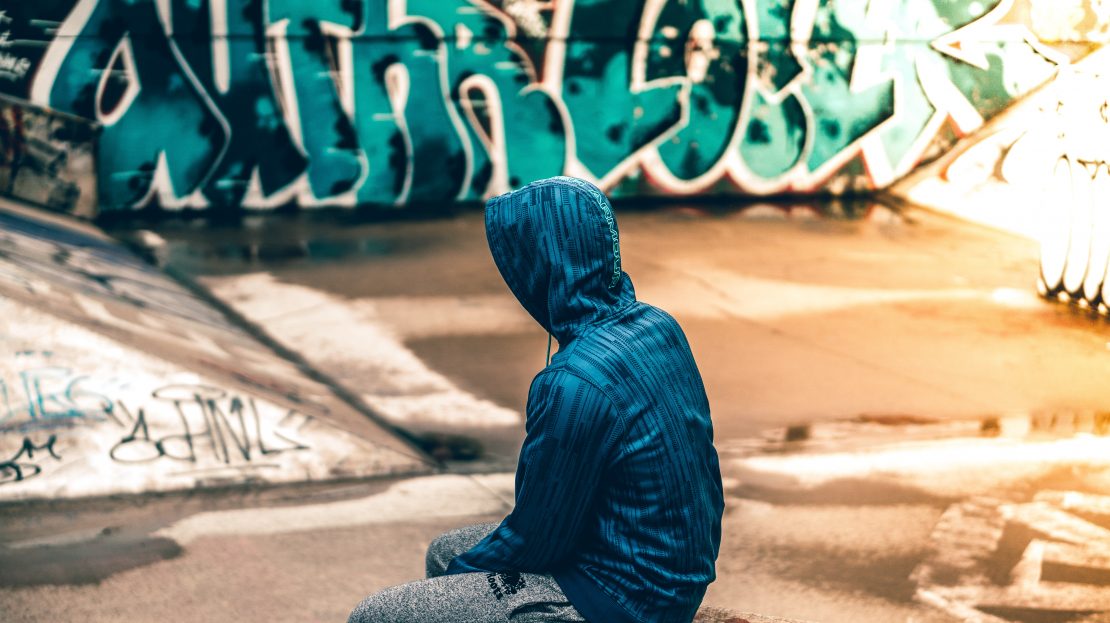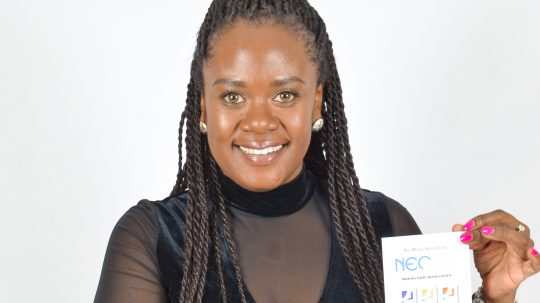I did not realise I was autistic until I was diagnosed with ASD (autism spectrum disorder) aged 30. For me, this was a life-changing, affirming discovery that helped me to understand and put into perspective the things I’d struggled with all my life.
I grew up in a loving family and excelled at school thanks to the structure my parents gave me. I built my life around my family and my school work; I was passionate and determined and wanted to go to university, even managing to secure a place at a university abroad, in the Netherlands, to study science and languages. It was a dream come true.
The news that changed the direction of my life, forever.
I remember unpacking my boxes with such enthusiasm; I could not wait to start my life in the adult world. I was just about to go out, from my new student accommodation, when I received a phone call from my mother. The news would change the direction of my life forever, and lead to years of undiagnosed struggle and battle for survival. My father had just died of a heart attack.
One week later, I said goodbye to my mother again, and just a fortnight after my father’s death, I started university. The years that followed, in my early twenties, were muddled and confusing, but I threw myself into what I loved the most, the pursuit of knowledge. I was lucky enough to secure scholarships to continue studying abroad and travelled Asia during my bachelor’s and master’s degrees. The structure and predictability of education saved me, in many ways, and to all intents and purposes, I was able to flourish.
I write all this to provide an insight into the person I was, and still hope I am. For what was to happen next left me bereft of an identity, voice, and purpose. I came back to the UK in early 2018 as my family was still struggling to deal with my father’s passing. My brother was not coping, and my mother was unable to handle the situation. I was bereft, I became unwell and had to curtail my Masters abroad, to help care for my family.
After a year, I became increasingly emotionally distressed at the lack of help we as a family were receiving. Behind closed doors, I felt like a failure, heartbroken that I’d had to give up my travels and return to my childhood home. We reached out for help from various services, but there was very little, if anything, available on the ground. The crisis snowballed, and I was admitted for eight days to an inpatient unit at a local hospital. After those eight days, I was deemed fit for discharge and I was ejected back into the community. The environment was chaotic, and traumatizing, and left me with flashbacks. There was no therapy in the community to come to terms with this, and I was again left floundering.
To this day, I am still horrified at what I witnessed
Four months later and there was still no proper help; at this point I was unable to keep myself safe. I missed my dad and my previous life and felt I had given up everything for nothing. I was admitted involuntarily under the Mental Health Act to an out-of-beds situation, hundreds of miles from home. For the next few months, I was detained in hospital, and I remain to this day horrified at what I witnessed.
The doctors deemed me as lacking the capacity to make my own decisions and understand their consequences. A mental health lawyer told me that, because I was unwell, I was unable to leave. I protested vehemently that surely no one could ever recover in such a distressing and terrifying environment. Alarm bells would ring every time there was an incident; I saw restraint upon restraint of young women who were struggling; and many times I called out staff for what I now know to be the overuse of restrictive practice. I became distressed at what I witnessed, and the staff reacted to me in a similar way ; I felt inherently ashamed, as though I had done something wrong. My brain was overwhelmed with the chaos of the setting, the bright lights terrified me, the screaming from adjoining rooms left my body in fight or flight mode, and I wanted to do nothing but escape the current situation.
My mental and physical health began to deteriorate as I was experimented upon with various cocktails of medication. My mental and bodily autonomy was no longer my own, and I became a number. Family visits were restricted, and I was branded non-cooperative and troublemaking by staff.
Locked rehab was one of the worst places I have ever had the misfortune to be in
Eventually, I was moved to my local hospital, but then on to a locked rehab, again hundreds of miles from my home. I was instructed to sign a document, allowing for full funding to go ahead to the locked rehab. This is a requirement when you are accepted for mental health treatment, and this is often in different counties. Integrated Care Boards and health commissioners provide funding for mental health patients to be treated in so called specialist hospitals. Often these places actually lack any specialism, and operate a people before profit model. The coercion and lack of humanity have stayed with me to this day.
The locked rehab was one of the worst places I have ever had the misfortune to be in. It is impossible not to contrast the joy, happiness and freedom of having travelled to some lesser-known parts of the world to being locked 24/7 in a corridor, with little access to the outside environment. When you are detained under the Mental Health Act, all your liberties and freedoms are taken from you. I was administered four different medications a day, which led to me becoming increasingly physically unwell. The medications sedated me; I had no agency.
Now I look back, I am completely horrified at how this institution was given a huge sum of money, to effectively abuse me. When I was released, I was unable to even put a sentence together, so traumatised was I by what had happened. I obtained a diagnosis privately of autism and ADHD (attention deficit hyperactivity disorder) in 2022, and what struck me, in hindsight, was the complete lack of training for professionals, with regards to women on the spectrum.
I spent 17 months of my life detained and misdiagnosed
Emotionally unstable personality disorder is a diagnosis that many undiagnosed autistic women face. It is cited as a personality disorder, where people are impulsive and able to control their emotions. Unfortunately, and in my experience, this diagnosis is carried out purely by observing a person in an already very distressing environment. Autistic women are supremely good at masking their emotions, and when distressed is very often mistaken as a personality disorder. In mine, and many other women’s experience, this diagnosis often leads to further abuse and neglect. When I received my ASD diagnosis, I became supremely angry. How could I have spent 17 months of my life detained in a place that not only made me worse, but also misdiagnosed me? The lack of accountability, justice, and redress also infuriated me, when I found out the locked rehab unit I had been sent to, and which had received so much funding, had been rated unsafe on every account by the CQC.
I have struggled to find legal representation and gave up hope of ever bringing the horrors of what happens in specialist mental health units to light. But I began to research and found out that I was far from alone.
Currently, it is estimated that more than 2,000 people with learning disabilities and autism are being held under the Mental Health Act in institutions across the country, far away from their families. These are people with their own identities, who have their own lives and families, who have been taken away from everything they know.
Such environments are entirely inappropriate and often detrimental to the needs of people like me, like them. There is currently no official advocacy, accessible legal representation, or governmental redress for people with disabilities who have been institutionalised under the Mental Health Act. I feel lucky to be able to tell my story, as many peers who have been put in these places are either still locked up or no longer alive. It is a human rights scandal in plain sight.
The opinions shared in this article are that of the authors.




